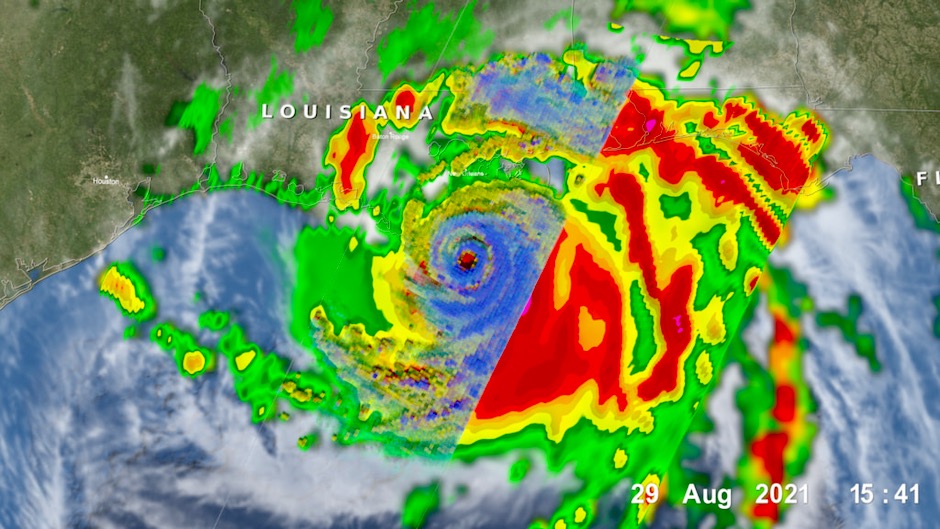MIAMI—A recent survey of people recently affected by hurricanes across four states found that the public is willing to pay more than $500 million a year to improve hurricane forecasts. The study, led by a group of atmospheric scientists and economists at the University of Miami (UM) Rosenstiel School of Marine and Atmospheric Science, comes at a time when Hurricane Ida’s path caused widespread damage across U.S. states.
“People see a direct benefit from having better science and information regarding track, wind speed and precipitation associated with these storms,” said Renato Molina, assistant professor of environmental and resource economics at the UM Rosenstiel School.
The researchers surveyed middle-class families that were affected by hurricanes Florence or Michael and lived roughly 50 miles from the coast in Florida, Georgia, and North and South Carolina. Respondents were asked to answer a series of questions to understand their attitudes toward forecast improvements.
The researchers found that the respondents were willing to pay for further improvements to hurricane forecasts and that this willingness to pay expands to all attributes tested — storm track, wind speed, and precipitation—with wind speed forecast the most valuable of the improvements. They found that the average willingness to pay for continued storm track improvements were $26.07 per household per year, $28.89 wind speed, and $21.63 for precipitation forecast accuracy.
“When presented with the facts about the science behind hurricane forecasts, the public is able to understand how funding research allows them to make better decisions in the face of a hurricane,” said Molina. “They value this enough that they can assign a price to these improvements and are willing to pay for it.”
In 2018 Hurricane Michael made landfall along the Florida Panhandle as a Category-5 storm, causing an estimated $25.1 billion in damages. 2018 Hurricane Florence made landfill in North Carolina as a category one storm and $24.23 billion in damage.
The study, titled “Striving for Improvement :The Perceived Value of Improving Hurricane Forecast Accuracy,” was published in the Bulletin of the American Meteorological Society. The study’s authors include: Renato Molina, David Letson, Brian McNoldy and Matthew Varkony from the UM Rosenstiel School and Pallab Mozumder from Florida International University. The research was funded by the National Oceanic and Atmospheric Administration (grant # NA15OAR4320064.

